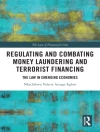Empirical data is one of the cornerstones of knowledge in the social sciences, and yet the researcher often takes it for granted, reserving his or her imaginative faculties for finding a theory that ′fits the data′. This revealing account of the theory-data relationship calls this faith in data into question and establishes a reflexive framework and vocabulary to explore the creative, political and philosophical elements of data production.
Rather than thinking about the theory-data ′fit′, Alvesson and Karreman will encourage you to consider the research process as one of theory-data interplay, asking if creative empirical material can challenge established theory and inspire new lines of development, and if breakdowns and mysteries encountered in research can be a constructive rather than destructive process.
They will encourage you to think critically about empirical data in terms of construction rather than verification, and most importantly they will encourage you to develop theory that is interesting and novel, rather than naive or irrelevant, making this title essential reading for those who often find the traditional vocabulary and frameworks of social science research obvious or simplistic.
表中的内容
The Use of Empirical Material for Theory Development
The Role of Constructions and Language in Empirical Research
Key Methodological Principles for Detecting Mysteries
A Methodology of Sorts for Theorizing from Empirical Material
Illustrating the Development and Resolution of Mysteries
Fieldwork Techniques and Mystery Creation
Research Guided or Assisted by Mystery?
关于作者
Mats Alvesson is Professor of Organization Studies at the University of Bath, and also affiliated with Lund University, Stockholm School of Economics and Bayes Business School, City, University of London.












